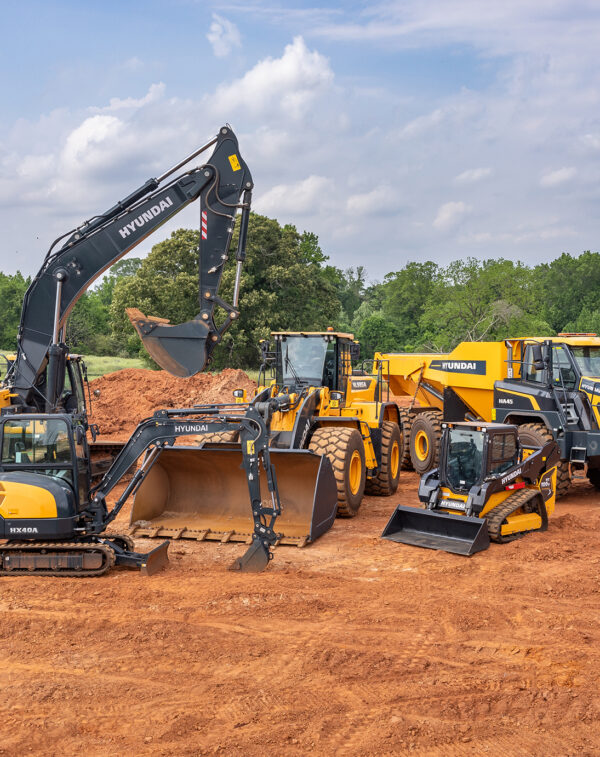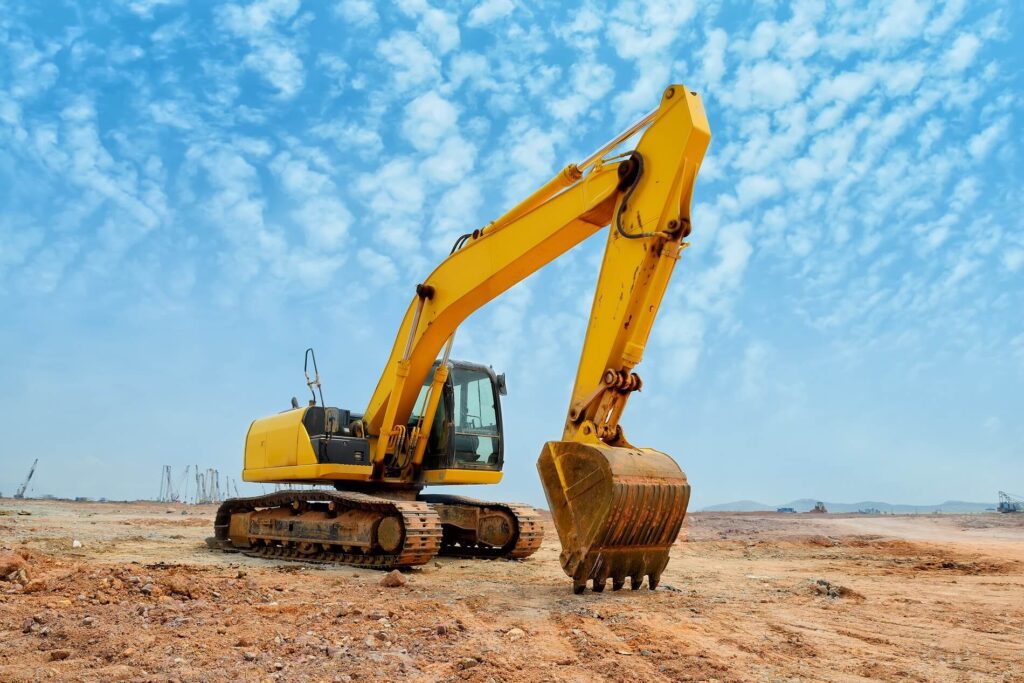Construction Equipment Rentals in Tuscaloosa AL: Every Little Thing You Required for Your Work Website
Construction Equipment Rentals in Tuscaloosa AL: Every Little Thing You Required for Your Work Website
Blog Article
Exploring the Financial Benefits of Leasing Building Devices Compared to Having It Long-Term
The choice between owning and renting out building and construction tools is pivotal for monetary management in the industry. Renting out offers instant cost savings and operational flexibility, permitting firms to allocate resources much more efficiently. On the other hand, ownership features substantial lasting financial dedications, consisting of maintenance and devaluation. As specialists evaluate these alternatives, the impact on capital, project timelines, and technology accessibility ends up being progressively substantial. Recognizing these subtleties is vital, especially when considering just how they line up with specific job demands and economic strategies. What variables should be prioritized to make certain ideal decision-making in this complicated landscape?

Expense Comparison: Renting Vs. Having
When assessing the economic implications of leasing versus possessing construction devices, a comprehensive expense comparison is vital for making informed choices. The selection between having and renting can significantly influence a business's profits, and understanding the linked costs is critical.
Leasing building equipment normally involves lower in advance prices, allowing services to allocate resources to other operational requirements. Rental costs can collect over time, possibly surpassing the cost of possession if equipment is needed for an extended period.
On the other hand, owning building tools calls for a substantial initial financial investment, together with recurring prices such as depreciation, insurance coverage, and financing. While ownership can cause lasting financial savings, it additionally links up resources and might not give the very same degree of adaptability as leasing. In addition, possessing tools demands a dedication to its usage, which may not always align with project demands.
Ultimately, the decision to rent or own should be based on a comprehensive analysis of specific project demands, economic capability, and long-lasting calculated goals.

Maintenance Costs and Duties
The selection in between renting out and possessing building and construction devices not only involves financial considerations yet additionally incorporates recurring upkeep costs and obligations. Having devices requires a considerable commitment to its upkeep, that includes routine inspections, fixings, and possible upgrades. These duties can promptly collect, causing unforeseen costs that can stress a spending plan.
On the other hand, when leasing equipment, maintenance is typically the duty of the rental company. This plan allows specialists to prevent the financial worry related to deterioration, as well as the logistical obstacles of scheduling repairs. Rental arrangements commonly include stipulations for maintenance, meaning that service providers can concentrate on completing tasks instead of fretting about equipment condition.
Moreover, the varied variety of tools available for rental fee allows business to pick the most recent designs with advanced innovation, which can enhance performance and productivity - scissor lift rental in Tuscaloosa Al. By choosing rentals, businesses can avoid the long-term obligation of tools depreciation and the connected upkeep headaches. Inevitably, evaluating maintenance expenditures and duties is vital for making an educated choice concerning whether to rent out or own construction devices, dramatically impacting general task costs and functional efficiency

Depreciation Influence on Ownership

A considerable variable to consider in the decision to have building and construction equipment is the impact of depreciation on general possession costs. Devaluation stands for the decrease in value of the equipment gradually, affected by variables such as usage, wear and tear, and developments in innovation. As tools ages, its market price diminishes, which can considerably impact the proprietor's economic placement when it comes time to trade the equipment or sell.
For building and construction business, this devaluation can equate to substantial losses if the tools is not utilized to its greatest capacity or if it comes to be outdated. Proprietors need to account for devaluation in their financial projections, which can bring about greater general costs contrasted to leasing. Additionally, the tax obligation ramifications of devaluation can be complicated; while it may supply some tax advantages, these are usually balanced out by the reality of lowered resale value.
Inevitably, the worry of devaluation stresses the value of understanding the lasting financial dedication included in possessing building tools. Business must meticulously assess just how typically they will certainly utilize the tools and the potential economic impact of depreciation to make an enlightened decision regarding possession versus renting.
Monetary Adaptability of Leasing
Renting out construction tools offers substantial financial adaptability, permitting companies to allocate resources extra efficiently. This versatility is specifically essential in an industry identified by rising and fall project demands and differing work. By opting to lease, organizations can avoid the substantial funding expense needed for buying tools, maintaining capital for other operational requirements.
In addition, renting out tools makes it possible for companies to tailor their tools choices to particular job demands without the long-lasting dedication connected with possession. This suggests that businesses can easily scale their devices stock up or down based upon existing and expected task needs. Consequently, this flexibility reduces the risk of over-investment in machinery that might come to be underutilized or out-of-date over time.
Another financial benefit of renting out is the possibility for tax obligation benefits. Rental payments are typically thought about operating costs, permitting immediate tax reductions, unlike depreciation on owned equipment, which is spread out over a number of years. scissor lift rental in Tuscaloosa Al. This immediate expense acknowledgment can additionally enhance a company's cash money setting
Long-Term Task Considerations
When reviewing the long-term requirements of a construction service, the choice in between renting and having equipment ends up being extra complex. For projects with prolonged timelines, acquiring tools may seem helpful due to the possibility for reduced overall expenses.
The building industry is developing rapidly, with brand-new tools offering boosted performance and safety and security functions. This flexibility is particularly beneficial for businesses that take care of varied jobs needing different kinds of devices.
Moreover, monetary stability plays a crucial role. Possessing devices commonly involves find here significant capital financial investment and depreciation concerns, while renting out enables more predictable budgeting and cash money circulation. Inevitably, the selection between owning and renting out ought to be aligned with the critical goals of the construction organization, taking into site web consideration both anticipated and existing project needs.
Conclusion
In conclusion, leasing building tools offers substantial financial advantages over long-lasting possession. Eventually, the choice to rent out instead than own aligns with the dynamic nature of building tasks, permitting for adaptability and access to the newest tools without the economic worries linked with possession.
As tools ages, its market worth lessens, which can considerably affect the owner's financial setting when it comes time to trade the equipment or sell.
Renting building devices provides considerable monetary versatility, enabling business to designate sources a click for source lot more effectively.Furthermore, leasing tools makes it possible for firms to customize their devices options to specific project requirements without the long-lasting commitment associated with possession.In verdict, renting out building and construction devices provides substantial economic benefits over long-term possession. Eventually, the decision to rent out instead than own aligns with the dynamic nature of building and construction tasks, enabling for adaptability and accessibility to the most current equipment without the economic concerns associated with possession.
Report this page